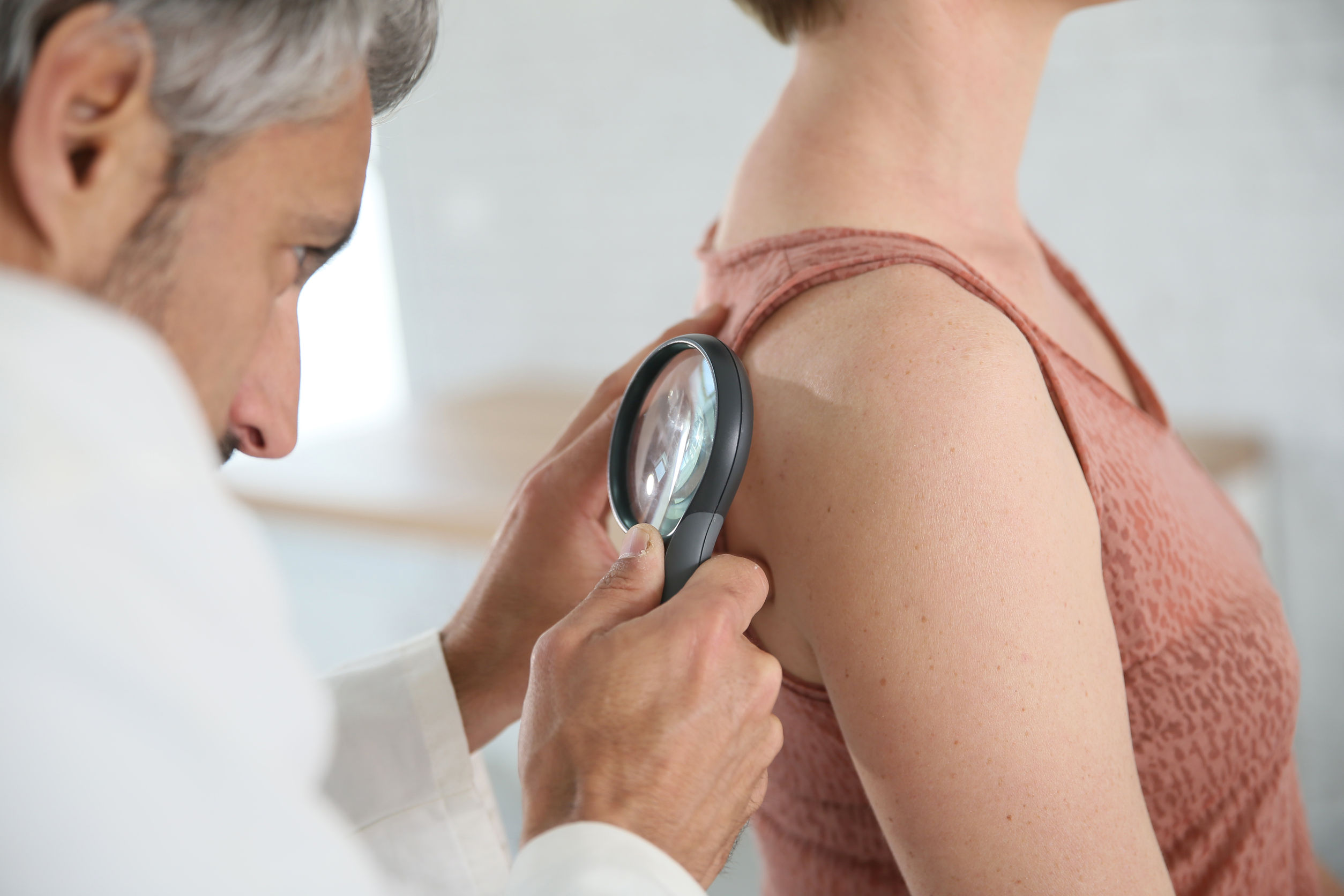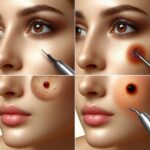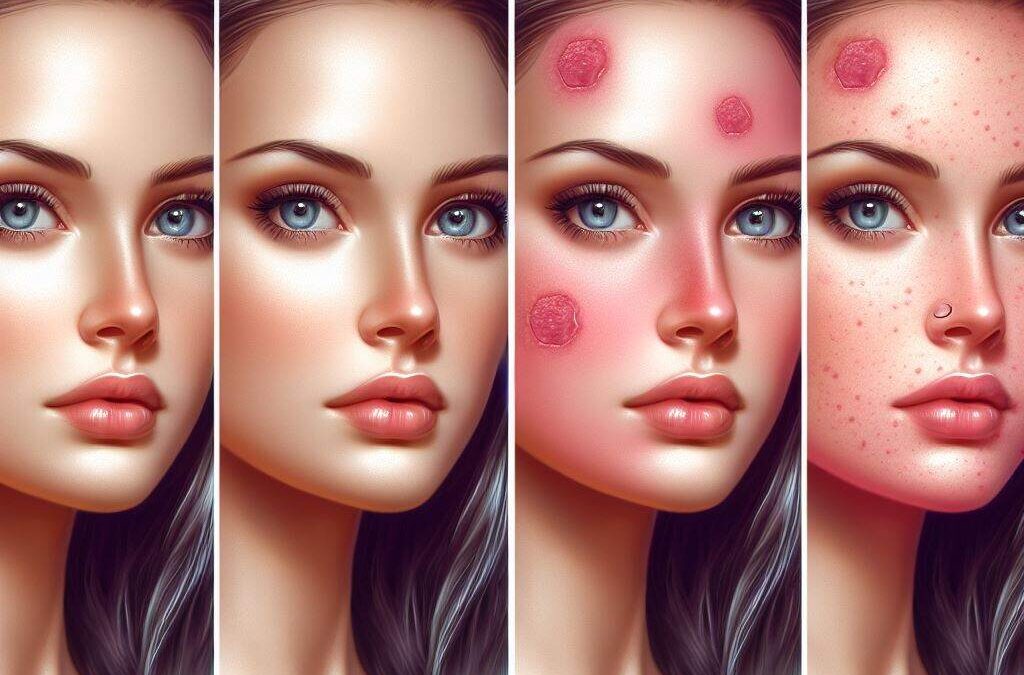
Skin Cancer: Reasons, Symptoms, and treatment in Phoenix Area, Arizona
March 3, 2024
Mole Removal Healing Process: A Comprehensive Guide
March 24, 2024Introduction to Skin Cancer on the Face
Skin cancer is popular among all other cancer types. While it has become increasingly common, the good news is that all types of skin cancer on the face can be treated, especially when detected on time. Therefore, consulting a professional dermatology service is recommended to treat facial cancer of the face.
Causes of Skin cancer on the face
Skin cancer arises from the uncontrollable growth of cells within the outer layer of the skin, known as the epidermis. The primary cause of this abnormal growth is damage to the DNA. For further clarification, skin cancer exams are suggested through dermatology experts.
Various factors contribute to the development of skin cancer, with UV rays being the most prominent. Ultraviolet (UV) rays from the sun can harm the skin and lead to the formation of skin cancer on the face. People who use UV tanning creams also cause skin cancer.
Nowadays, the medical field is very advanced. Mobile Skin screenings facilitate timely detection and treatment of skin cancer, potentially preventing further complications and scarring.
Early skin screening helps skin experts detect the growth at a precancerous stage before its penetration under the skin.
Importance of Skin screening
The growth of noncancerous skin conditions is also the same as cancerous growth, so we can’t assume it by ourselves and get a headache. At Mobile Skin Screening, We will come to your place and screen your face. We provide our home’s best dermatology services across Metro Phoenix.
Why do people in Phoenix, Arizona have a high risk of skin cancer?
Phoenix, Arizona is high up (close to the sun) and close to the equator(low latitude). As it’s high up and near the equator, this makes it have a warm climate throughout the year. This extra exposure to the sun increases the chances of cancer.
Symptoms of Skin Cancer
Symptoms of skin cancer on the face can vary depending on the specific type of cancer and its location on the skin as well as individual skin types. However, some common symptoms include:
- You observe different changes in moles such as variation in color, increase in size, and itchiness or tenderness
- Red nodules
- Scaly lesions
- Bleeding from lesion
Types of skin cancer on the face
- Melanoma
- Basal cell carcinomas (BCCs)
- Squamous cell carcinoma (SCC)
- Merkel cell carcinoma (MCC)
Melanoma
Melanoma is a type of cancer on the face that originates from melanocytes. These cells in the skin are responsible for producing melanin pigment, which gives skin its color. Melanoma often resembles moles in appearance and can develop anywhere on the body.
Usually, skin cancer forms in areas primarily visible in the sun, but this is not the case in melanoma, as it can occur in other areas of the skin. Early detection and prompt treatment are crucial for effectively managing melanoma and improving outcomes for affected individuals.
Basal Cell Carcinoma (BCC)
BCC is indeed the most prevalent type of skin cancer, impacting millions of individuals annually in the United States alone. It tends to develop predominantly on areas of the skin that receive frequent exposure to the sun such as the face.
Squamous cell carcinoma (SCC)
Squamous cell carcinoma (SCC) occurs in the epidermis. Squamous cells are flat in shape and continuously form in the epidermis.
When these cells grow out of control, they start developing into squamous cell skin cancer (also called squamous cell carcinoma). Squamous cell carcinoma (SCC) is the 2nd most popular type of skin cancer.
SCC is common in people with light skin tones. However, it is different for all cases, as people with darker skin tones can also get this. Early diagnosis and appropriate treatment are essential to stopping SCC from growing deep and moving toward other areas of the skin.
The symptoms are a red bump with a scaly patch. These bumps are often sore, healed, and then happen again. It is flesh-colored.
Merkel cell carcinoma (MCC)
Merkel cell carcinoma (MCC) is not as common and aggressive as other skin cancers. It usually appears on the eyelid, neck, and head, and areas that are more exposed to the sun. This cancer is most often arising in sun-exposed areas. People with fair skin tone mostly get it.
Ideal methods to treat cancer on the face
There are multiple methods to treat cancer on the face. The treatment methods vary from one type of cancer to another. Dermatology experts also consider cancer stage, duration, face color, and face type to choose the best way to treat it.
Some of the most used methods are Immunotherapy, Surgery, Radiation therapy, drug therapy, Photodynamic therapy, Targeted therapy, and Chemotherapy.
Do you want Skin cancer screening in Phoenix, Arizona?
Early detection and treatment of cancer on the face can significantly improve outcomes for individuals with skin cancer. At Mobile Skin Screening, we provide affordable packages for screening and treating face cancer. Skin Cancer Treatment in Phoenix, Arizona then Contact us today!
Frequently asked questions
What are the symptoms of cancer on the face?
Symptoms of cancer on the face are new spots on the face which are itchy, painful moles, or non-healing sore
What is the most common type of face cancer?
The most common type is Basal cell carcinomas (BCCs).
What is stage one of face cancer?
It depends on the type of cancer. Generally, it’s a small growth on the face.

